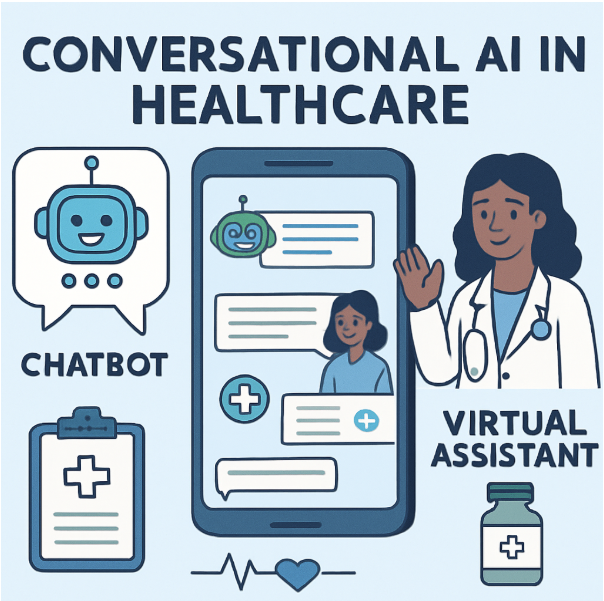In the rapidly evolving landscape of healthcare, the integration of Conversational AI is proving to be a game-changer. As a visionary in technological innovations, you understand the potential of Conversational AI to transform patient care. This article delves into the ways in which Conversational AI is enhancing healthcare, the challenges faced in its implementation, and the broader implications for the industry.
The Rise of Conversational AI in Healthcare
Conversational AI refers to technologies, like chatbots and virtual assistants, that can communicate with users in natural language. In healthcare, these tools are used to interact with patients, provide information, and even assist in diagnosis and treatment plans.
Why Healthcare Automation Matters
With an increasing demand for healthcare services and a shortage of medical professionals, automation becomes essential. Healthcare automation, particularly through Conversational AI, helps bridge this gap by handling routine tasks, thus allowing healthcare providers to focus more on patient care.
AI in Medicine: A Revolutionary Approach
Artificial Intelligence in medicine is not just about automating tasks. It involves using data-driven insights to enhance decision-making, improve accuracy in diagnosis, and personalize treatment plans. Conversational AI, with its ability to understand and process human language, offers a unique advantage in this context.
Practical Applications of Conversational AI
Enhancing Patient Engagement
One of the primary benefits of Conversational AI is improved patient engagement. Virtual assistants can provide patients with immediate responses to their queries, send reminders for medication, and even offer emotional support. This constant engagement helps in building trust and ensuring compliance with treatment plans.

Streamlining Administrative Tasks
Conversational AI can significantly reduce the administrative burden on healthcare facilities. By automating appointment scheduling, billing inquiries, and patient triage, healthcare providers can allocate more resources to patient care, thereby improving overall efficiency.
Assisting in Diagnosis and Treatment
AI-powered tools can analyze patient data and symptoms to assist doctors in diagnosis. While AI is not a replacement for human expertise, it can provide valuable insights and suggest possible treatment options, ensuring that patients receive timely and accurate care.
Challenges and Considerations
Data Privacy and Security
One of the major concerns with AI in healthcare is data privacy. Handling sensitive patient information requires stringent security measures to prevent breaches and ensure compliance with regulations like HIPAA.
Integration with Existing Systems
Integrating Conversational AI into existing healthcare systems can be challenging. It requires significant investment and a strategic approach to ensure that these tools work seamlessly with other technologies and workflows.
Balancing Automation with Human Touch
While automation offers numerous benefits, it’s essential to maintain the human touch in healthcare. Patients should always have access to human professionals for more complex issues and emotional support.
The Future of Conversational AI in Healthcare
The potential of Conversational AI in healthcare is immense. As technology advances, we can expect even more sophisticated AI systems that offer deeper insights and more personalized care.
AI and Personalized Medicine
The future of AI in medicine lies in its ability to offer personalized treatment plans based on individual patient data. By analyzing genetic, environmental, and lifestyle factors, AI can help in creating tailored healthcare solutions.
AI-Driven Predictive Analytics
Predictive analytics powered by AI can transform preventive care. By analyzing trends and patterns in patient data, AI can predict potential health issues and suggest preventive measures, reducing the incidence of chronic diseases.
Conclusion
Conversational AI is poised to revolutionize healthcare by improving patient care, streamlining operations, and enhancing decision-making. However, its successful implementation requires careful consideration of challenges like data privacy, system integration, and maintaining human interaction.
For industry leaders like CTOs, Business Strategists, and Innovation Managers, the key lies in leveraging these technologies to align with business goals, drive innovation, and maintain a competitive edge. By embracing Conversational AI, healthcare organizations can not only improve patient outcomes but also position themselves at the forefront of technological advancement.
In conclusion, as we continue to explore the intersection of AI and healthcare, it’s crucial to foster an environment of collaboration and innovation. This will not only enhance patient care but also pave the way for a more efficient, effective, and equitable healthcare system for all.




